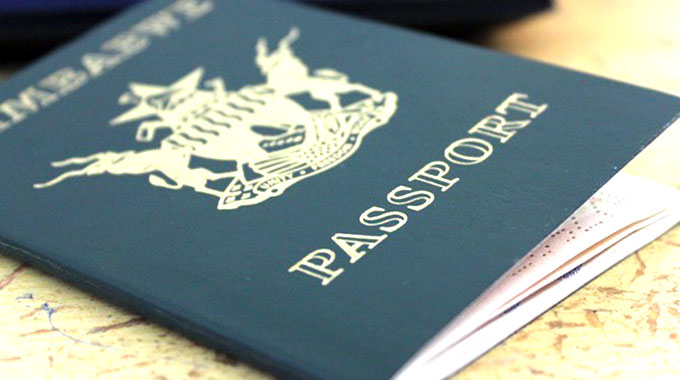Respect for males advocating for the ‘IT’ experience

Fadzai Maposah Correspondent
Harare Polytechnic is a big institution; it is much bigger now than the time when I was a journalism trainee at the Division of Mass Communication.
It is an institution that has a special place in my heart because of the so many precious memories from my student days.
It was enough exercise walking from the hostel to either the main gate or the small gate.
We walked while we attempted to read the newspapers that we collected from the division’s library reception each morning before we headed to class.
Just thinking about how many times we walked while at the polytechnic is mind blowing.
We walked to all parts of town, basically any part of town!
We mastered street names and buildings.
For most of the students, it was the first time that we were in Harare without adult escorts or guidance.
For some, coming to the Harare Polytechnic was actually the very first time to be in capital city.
So you can imagine the excitement and sense of adventure!
On one occasion I was with colleagues as we travelled from Bulawayo. As we drove past the National Sports Stadium, I shared how as students we walked from the Harare Polytechnic to support the Dream Team (Zimbabwe National Soccer Team).
We never felt any strain as we trekked to and fro the stadium in large groups.
Students walked everywhere even on college grounds.
The more energetic ones, ran! Even without leaving college grounds, one would have enough walking.
As we did not have mobile phones to locate one another, one had to walk for basically everything.
There was a lot of going up and down the stairs to get books, to ask for something or just to spend time together.
Some students would just call out the names of the ones they were looking for from outside.
It was not out of the ordinary that as one walked out of class one would find a roommate waiting by the building because they would have misplaced a key and wanted something from the room.
One just had to walk to ensure that things were done!
Walking out of hostel one morning with lots of time before my first lecture, there was a group of male students standing by the brick work that was at the entrance of hostel A.
Nothing unusual in this. Male students had different reasons for being there all the time.
Some would be waiting for their friends, some for their girlfriends, some for their class mates or siblings or relatives. Some would just be trying their luck in getting dates!
As I walked quickly past the group of boys I avoided looking directly at them.
Remember I was coming from six years where we would scream, feign fainting when boys visited our girls’ school! So you can imagine what it was like to walk past boys every day.
I was some distance away from the boys when I heard that someone walking fast behind me. I did not turn to see who it was.
He caught up with me!
It was the male student from that evening when I walked out of the dining hall who had thought that I had stained my dress because of an ‘it’ experience. I had then explained that it was a mazhanje stain…
It was good to seeing him again especially after it had not been as disastrous as it could have been if it had been an `it` mishap. He was calm then.
After greeting me, he told me that he was on his way to town to get something.
I was on my way to the division reception to get my newspaper and then proceed to class.
He said we would get a chance to talk as we walked.
He asked which programme I was doing and when I told him Mass Communication, he asked why because I seemed to be a person of few words!
That was enough to break the ice! Who? Me, a person of few words? He laughed.
I explained that I did not talk much to people that I did not know.
He introduced himself. Wellington. I introduced myself.
I thanked him for looking out for me. I remember that he shrugged.
He waited as I collected my newspaper and then as we walked he explained why he had done what he did.
Wellington was the youngest in a family of four. He was the only boy.
His second sister began the “it” when he was in primary school and she left ‘evidence’ in the bathroom.
He had no idea what it was. He picked the used sanitary pad which was wrapped in a newspaper and was walking to tell his sister that she had left something in the bathroom, when he met his father who asked him what he was holding.
He explained that his sister had left something in the bathroom.
When his sister heard him, she came out of the bedroom that she shared with the other sisters.
Wellington said that she looked very embarrassed as she grabbed the “package”.
What his father said and did after that changed his definition of being a real man.
His father apologised to his sister on his behalf and while he was still coming to terms with what was happening, his father led him gently outside, told his mother that they were taking a walk.
He told me how his father walked with him to a park where they sat on a bench and how his father simplified the “it” experience and encouraged him to look out not only for his three sisters but other women who would need him.
It was natural, his father had emphasised that mishaps could happen.
After saying goodbye, I watched him walk to the small gate. People are shaped by their experiences.
I walked to join the typing class.







Comments